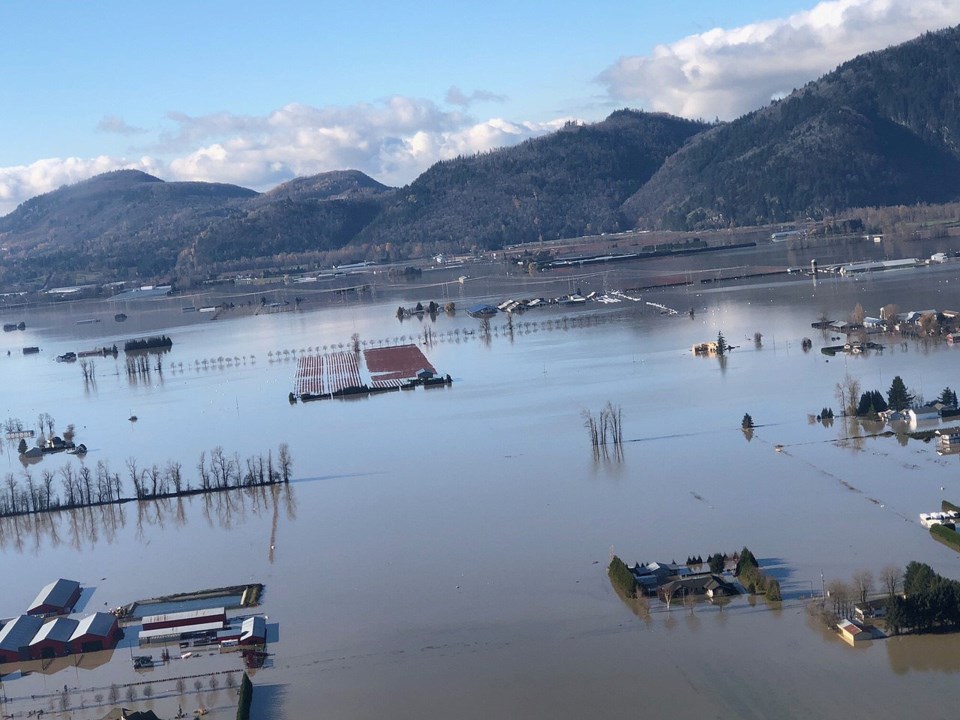It has been a year since the catastrophic flooding on the Sumas prairie and the city of Abbotsford.
Hundreds of millions of dollars in damages to more than 1,000 farms and 15,000 hectares of land. Much of the farming economy in the area essentially destroyed. 2.5 million livestock lost and livelihoods ruined.
Two weeks ago the Senate Committee on Agriculture released a report on the disaster that will hopefully gain some traction and see recommendations come to fruition rather than being shelved for any given election cycle. The Hippopotamus in the room is money, lots of it.
Although all levels of government knew there were potential problems with diking infrastructure on the Sumas prairie, no precautionary upgrades were taken which resulted in the disaster. A consultant told the Senate Committee that if the Fraser River breached, the economic damage would be tenfold of what occurred on the prairie.
In Delta, it is not only the $750 million estimate of diking infrastructure that needs to be upgraded. Dredging of the lower Fraser is needed on a regular basis. It is estimated that 2,000 cubic metres of silt and other material washed downstream from last year, is contributing to concerning river levels and breach scenarios. Dredging is an entirely complex undertaking that requires deft stickhandling through a myriad of bureaucratic obstacles. The river doesn’t wait for process. Think if you didn’t clean your gutters every year. Can you imagine the damage?
For businesses, residents and our farming community, the estimated damage of a potential breach in Ladner is between $1 to 3 billion.
Also recently passed by the federal government was a unanimous motion by the House of Commons to have the government ask the Competition Bureau to investigate grocery chain profits.
The Fruit and Vegetable Growers of Canada (FVGC) notes that input costs for our food production have increased dramatically. Fuel costs are up 100 per cent, nitrogen fertilizer is up 121 per cent and now our farmers are being squeezed on margin by buyers, which of course, filters down to our budgets at home.
To protect our food security we can all do our part. We need to help our local farmers by supporting “BC Fresh” and buying BC whenever possible. Also, we can assist our farmers by better understanding risks to local farmlands from potential breach situations on the lower Fraser. We can write letters to all levels of government to request appropriate preparations for prevention and mitigation strategies.



